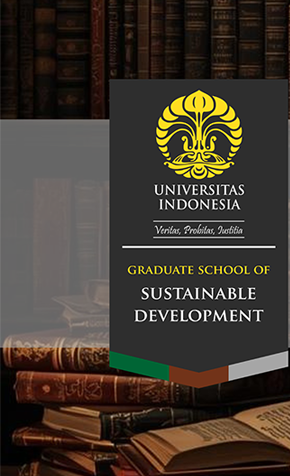Abstract
The purpose of this article is to conceptualize or redefine the concept of "lone wolf” in the context of global jihad. This article uses a meta-analysis approach by proposing two literature review methods, namely an effort to track a number of literatures that are the basis for defining lone wolf acts of terrorism and tracking a number of literatures that discuss the phenomenon of global jihad. This article finds that there are no acts of global jihad terrorism that operate independently, technological developments have pushed the global jihad agenda by Islamic activism on a local scale through social media as an instrument of mobilization and communication without having to interact directly. Therefore, this article concludes that the concept of global jihad glocalization is more appropriately used to refer to acts of terrorism carried out independently by Islamic-based terrorism groups rather than using the term "lone wolf". For this reason, the glocalization of global jihad in the process of ideological doctrine or the process of becoming radicalized is no longer conventional but runs in virtual spaces of social media.
Bahasa Abstract
Artikel ini bertujuan untuk mengkonseptualisasikan atau mendefinisikan kembali konsep “lone wolf” dalam konteks jihad global. Artikel ini menggunakan pendekatan meta-analisis dengan mengajukan dua metode literature review, yaitu upaya pelacakan terhadap sejumlah literatur yang menjadi dasar pendefinisian aksi terorisme lone wolf dan pelacakan terhadap sejumlah literatur yang membahas fenomena jihad global. Artikel ini menemukan bahwa tidak ada aksi terorisme jihad global yang beroperasi secara mandiri, perkembangan teknologi telah mendorong agenda jihad global oleh para aktivisme Islam pada skala lokal melalui media sosial sebagai instrumen mobilisasi dan komunikasi tanpa harus berinteraksi secara langsung. Oleh karena itu, artikel ini berkesimpulan bahwa konsep glokalisasi jihad global lebih tepat digunakan untuk merujuk pada aksi terorisme yang dilakukan secara mandiri oleh kelompok terorisme berbasis Islam daripada menggunakan istilah “lone wolf”. Untuk itu, glokalisasi jihad global dalam proses doktrin ideologi atau proses menjadi radikalis tidak lagi secara konvensional tetapi berjalan di ruang-ruang virtual media sosial
References
Afsaruddin, A. (2013). Striving in the Path of God: Jihad and Martyrdom in Islamic Thought. Oxford: Oxford University Press.
Ali, A.S. (2014). Al Qaeda: Tinjauan Sosial, Politik, Ideologi dan Sepak Terjangnya. Jakarta.LP3ES; 90-92.
Anindya, C.R. (2016). Lone Wolf Terrorism: Does It Exist in Indonesia?. RSIS Commentary, No. 277.
Bakker, E & de Graaf, B. (2011). Preventing Lone Wolf Terrorism: some CT Approaches Addressed. Perspectives on Terrorism, 5;5‐6;43- 48.
Borum, R., Robert Fein, R. & Vossekuil,B.(2012). “A Dimensional Approach to Analyzing Lone Offender Terrorism.” Aggression and Violent Behavior. 17;5;389–96
Gill, P, Horgan, J, & Deckert,P. (2014). “Bombing Alone: Tracing the Motivations and Antecedent Behaviors of Lone-Actor Terrorists.” Journal of Forensic Sciences. 59;2;425–35
Gruenewald, J, Chermak, S & Freilich, J.D. (2013). “Far-Right Lone Wolf Homicides in the United States.” Studies in Conflict and Terrorism. 36; 12.
Gunaratna, R. (2003). Inside Al-Qaeda, Global Network of Terror. New York: Berkley Publishing Group;45
Gunaratna, R. (2018). “Global Threat Forecast.” Counter Terrorist Trends and Analyses (CTTA).10:1;1-6.
Hamm, Mark S & Ramon Spaaij. (2017) The Age Lone Wolf Terrorism. New York: Colombia University Press.
Huda, Achmad Zainal (2019) "Melawan Radikalisme Melalui Kontra Narasi Online," Journal of Terrorism Studies: Vol. 1 : No. 2 , Article 1.
Kompas. (2021). Kapolri Sebut Penyerang Mabes Polri Teroris Lone Wolf.31;03. https://nasional.kompas.com/read/2021/03/31/21520681/kapolri-sebut-penyerang-mabes-polri-teroris-lone-wolf
McCauly,Clark & Sophia Moskalenko (2014) “Toward a Profile of Lone Wolf Terrorists: What Moves an Individual From Radical Opinion to Radical Action.” Terrorism and Political Violence: Volume 6. Issue 1.
Meloy, R & Yakeley, J. (2014). The Violent True Believer as a “Lone Wolf” - Psychoanalytic Perspectives on Terrorism. Behavioral Sciences and the Law.32; 3.
CNN, (2011) “Lone Wolf Terror Threat,” August 17,http://www.cnn.com/TRANSCRIPTS/1108/17/
Prasetya, Adhitya Yuda; Subroto, Athor; and Nurish, Amanah (2021) "Model Pendanaan Terorisme melalui Media Cryptocurrency," Journal of Terrorism Studies: Vol. 3 : No. 1 , Article 3.
Ramakrishna, K. (2014). Countering the self-radicalised lone wolf : a new paradigm?. RSIS Commentaries, No. 019.
Robertson, R. (1992). Globalization. Social Theory and Global Culture. London. Routledge.
Robertson, R. (1995). Glocalization: Time-Space and Homogeneity-Heterogeneity. in Featherstone, M, Lash, S & Robertson, R. (1995). Global Modernities. London: Sage.25-44.
Roy, O. (2004). Globalized Islam. The Search for a New Ummah. New York.Columbia University Press.
Rumman, Mohammad Abu, (ed). (2021). After the Caliphate: Ideology, propaganda, organization and global Jihad; Will ISIS make a comeback?. Amman: Friedrich-Ebert-Stiftung.
Sageman, M. (2008). Leaderless Jihad: Terror Networks in the Twenty-First Century. Philadelphia. University of Pennsylania Press;125-156
Simon, J.D. (2013). Lone-wolf Terrorism: Understanding the Growing Threat. Amherst, NY. Prometheus Books;266-277.
Smith, Debra & Steven Talbot. (2019) "How to make enemies and influence people: a Social Influence Model of Violent Extremism (SIM-VE)." Journal of Policing, Intelligence and Counter Terrorism 14 (2).
Sophia Moskalenko, S & McCauley, C.(2011). The psychology of lone-wolf terrorism. Counselling Psychology Quarterly, 24;2;115–126.
Sukoco, agung; Syauqillah, Muhamad; and Ismail, Asep Usman (2021) "Media, Globalisasi dan Ancaman Terorisme," Journal of Terrorism Studies: Vol. 3 : No. 2 , Article 5.
Spaaij, Ramon and Mark S. Hamm, (2015). “Key Issues and Research Agendas in Lone Wolf Terrorism,” Studies in Conflict & Terrorism 38, No. 3
Recommended Citation
Ashghor, Aly
(2022)
"REDEFINE THE CONCEPT OF LONE WOLF IN THE CONTEXT OF GLOBAL JIHAD,"
Journal of Terrorism Studies: Vol. 4:
No.
1, Article 6.
DOI: 10.7454/jts.v4i1.1047
Available at:
https://scholarhub.ui.ac.id/jts/vol4/iss1/6

